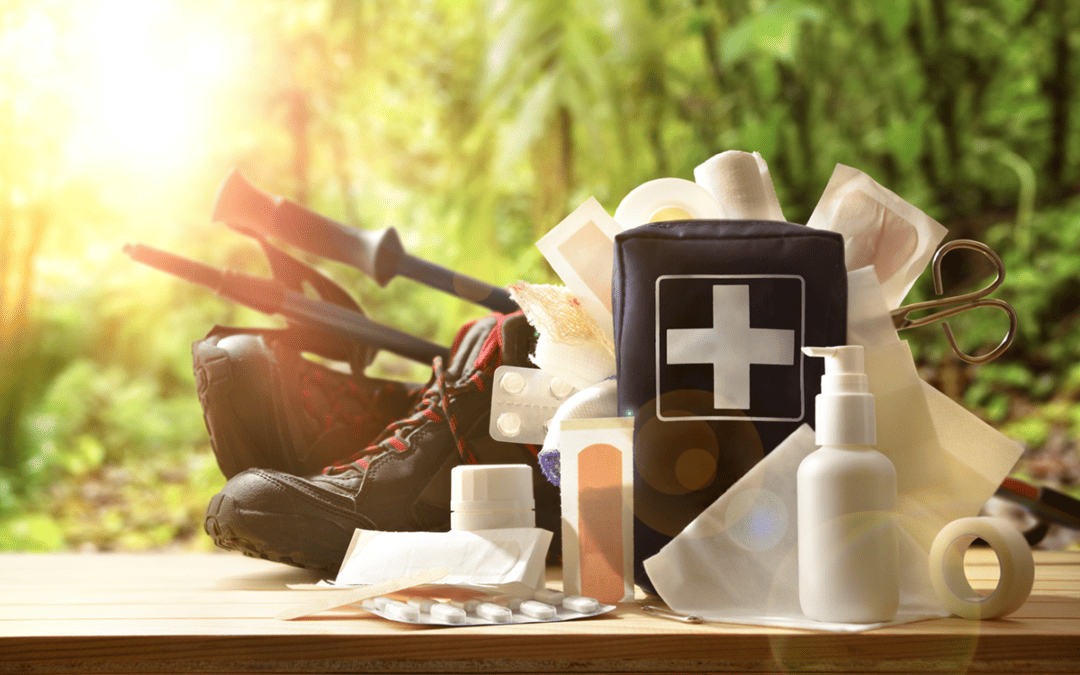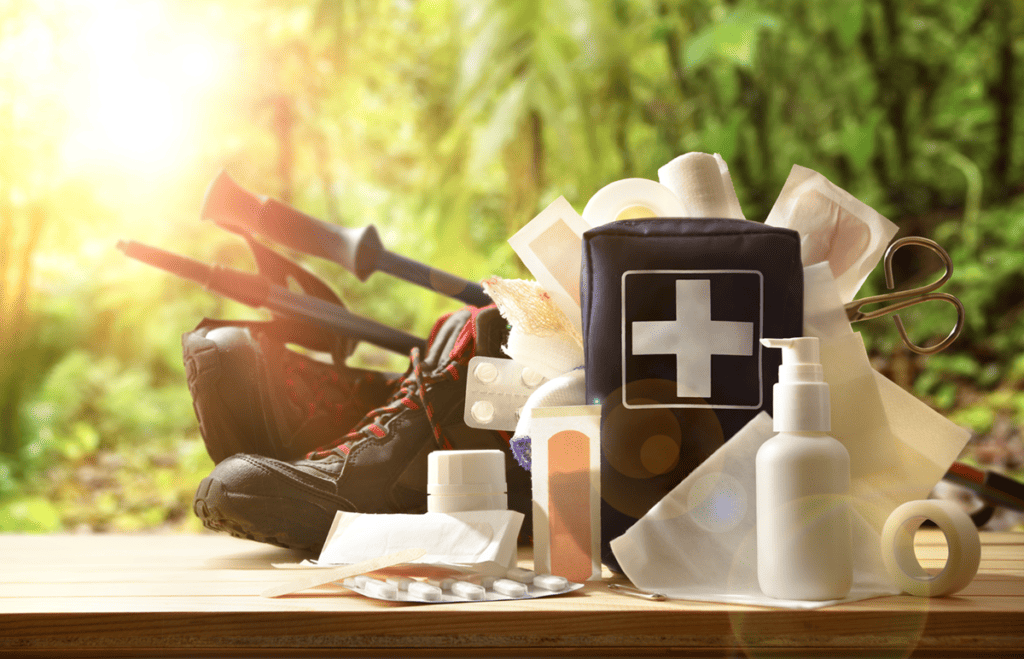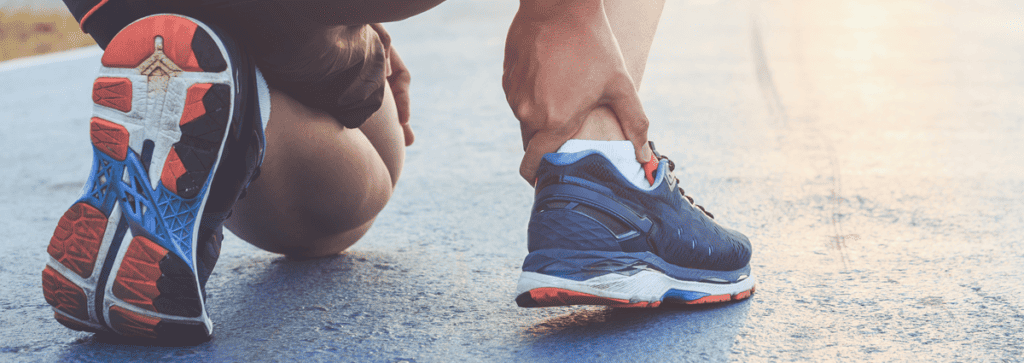
Essential First Aid Tips for Safe RV Camping Adventures

RV camping is a thrilling way to connect with nature, but the great outdoors can present unexpected challenges. One of the best ways to ensure a safe and enjoyable RV camping experience is by being prepared with essential first aid knowledge and supplies. In this guide, we’ll explore the crucial first aid tips every RV camper should know to handle common injuries and emergencies.
Preparing Your First Aid Kit
Before embarking on your RV camping trip, assemble a comprehensive first aid kit. Include essentials such as bandages, antiseptic wipes, pain relievers, tweezers, scissors, and emergency contact information. Regularly check expiration dates and replenish supplies to ensure your kit is always ready for action.
Understanding Common RV Camping Injuries

Insect Bites and Stings
Learn to identify common insects, understand their behaviors, and know how to treat and prevent bites and stings. Treating bug bites and stings is important to alleviate discomfort and reduce the risk of infection. Here’s a general guide on how to treat common bug bites and stings:
Wash the Area: Clean the affected area with mild soap and water to remove any bacteria and reduce the risk of infection.
Remove the Stinger (if applicable): If the bite or sting is from a bee or wasp, gently scrape the area with a flat-edged object like a credit card to remove the stinger. Do not use tweezers, as squeezing the stinger can release more venom.
Apply a Cold Compress: Use a cold pack or a clean cloth soaked in cold water to reduce swelling and numb the area. Apply it for about 10-15 minutes.
Elevate the Area (if applicable): If the bite or sting is on an arm or leg, elevating the affected limb can help reduce swelling.
Use Over-the-Counter Remedies: Apply an over-the-counter anti-itch cream or ointment containing ingredients like hydrocortisone to relieve itching and inflammation. Calamine lotion can also be soothing for bug bites.
Take Oral Antihistamines: Over-the-counter antihistamines, such as diphenhydramine (Benadryl), can help reduce itching and allergic reactions. Follow the recommended dosage.
Avoid Scratching: Despite the itching, try to avoid scratching the bite or sting, as it can worsen the irritation and increase the risk of infection.
Use Natural Remedies: Aloe vera gel or tea tree oil may have soothing properties. Apply a small amount to the affected area. Oatmeal baths can be helpful for relieving itchiness. Mix colloidal oatmeal into a lukewarm bath.
Watch for Signs of Infection: Monitor the bite or sting for signs of infection, such as increased redness, swelling, pain, or the presence of pus. If these signs develop, seek medical attention.
Seek Medical Attention if Necessary: If the person experiences severe allergic reactions, difficulty breathing, or symptoms of anaphylaxis (such as swelling of the face or throat), seek emergency medical help immediately.
Remember that individual reactions to bug bites and stings can vary, and if symptoms persist or worsen, it’s advisable to consult with a healthcare professional for proper evaluation and treatment.
Dealing with Environmental Factors

Hypothermia
Dress in layers and know warming techniques for emergency situations in colder climates. Recognizing the signs of hypothermia is crucial for prompt intervention.
Hypothermia Signs and Symptoms
Shivering: While shivering is the body’s natural response to cold, persistent, or severe shivering can be an early sign of hypothermia.
Cold and Pale Skin: The skin may feel cold to the touch, and it may appear pale or bluish. This is a result of reduced blood flow to the extremities.
Slurred Speech: Hypothermia affects the central nervous system, leading to impaired coordination and slurred speech. Individuals may have difficulty forming coherent sentences.
Confusion or Memory Loss: Hypothermia can impact cognitive function, leading to confusion, memory loss, and difficulty making decisions.
Fatigue or Weakness: A person with hypothermia may experience extreme tiredness or weakness, making it difficult to perform simple tasks.
Slow or Shallow Breathing: Hypothermia can slow down the respiratory system, resulting in slow or shallow breathing. In severe cases, it may progress to unconsciousness.
Drowsiness or Loss of Consciousness: As the body temperature continues to drop, individuals may become increasingly drowsy or may lose consciousness.
Weak Pulse: A weak or irregular pulse is a sign that the body is struggling to maintain normal physiological functions.

Sunburn and Heat-Related Illnesses
Emphasize the importance of sunscreen, hydration, and recognizing symptoms of heat-related illnesses. It’s important to note that severe heat-related illnesses, such as heat stroke, can be life-threatening and require immediate medical attention. Preventive measures like staying hydrated, wearing appropriate clothing, and avoiding excessive heat exposure are crucial in reducing the risk of these conditions.
Sunburn Signs and Symptoms
Red or Pink Skin: Sunburn typically causes the skin to become red or pink, and the severity can vary from mild to severe.
Warm to the Touch: Sunburned skin may feel warm or hot to the touch due to increased blood flow to the affected area.
Pain and Tenderness: Sunburned skin is often painful and tender, especially when touched or exposed to additional sunlight.
Swelling: In some cases, sunburn can lead to mild swelling of the affected areas.
Blistering: Severe sunburn can result in the formation of blisters on the skin, indicating more significant damage.
Peeling: As sunburned skin heals, it may begin to peel, revealing new skin underneath.
Itching: Sunburned skin may be itchy as it heals, but scratching should be avoided to prevent further irritation.
Signs of Heat-Related Illnesses
Heat Cramps:
- Muscle cramps and spasms, usually in the legs or abdomen.
- Sweating profusely.
Heat Exhaustion:
- Heavy sweating.
- Weakness and fatigue.
- Dizziness or lightheadedness.
- Nausea or vomiting.
- Cool, moist skin with goosebumps, despite the heat.
Heat Stroke:
- High body temperature (often 104°F/40°C or higher).
- Rapid and strong pulse.
- Absence of sweating, with hot and dry skin.
- Confusion, agitation, or loss of consciousness.
- Throbbing headache.
- Nausea and vomiting.
Dehydration:
- Dark yellow urine and decreased urine output.
- Dry or sticky mouth.
- Thirst.
- Fatigue or lethargy.
- Dizziness or light-headedness.

Other Types of Injuries
Sprains and Strains: Familiarize yourself with the RICE method (Rest, Ice, Compression, Elevation) and recognize when medical professional help may be needed.
Cuts, Scrapes, and Blisters: Properly clean and dress wounds, and implement prevention strategies to minimize the risk of injuries.
Emergency Protocols
Create an emergency action plan, familiarize yourself with the location and contact information of nearby medical facilities, and understand how to communicate with emergency services in remote areas.
First Aid Training:
Take a basic first aid course to gain hands-on practice for common RV camping scenarios. Being prepared with the right knowledge can make a significant difference in emergency situations.
Children and First Aid:
When RV camping with children, consider special considerations. Pack child-specific first aid items and be aware of techniques tailored to their needs.
Conclusion
If you’re staying at a TBG RV Park or Resort, for a life-threatening emergency please call 911. For after-hour issues requiring manager assistance, please call (361) 758-1400. Please inform management about your injury. They may be able to provide assistance, contact emergency services, or guide you to the nearest medical facility.
As you gear up for your next RV camping adventure, prioritize safety and preparedness. Armed with the knowledge and tools outlined here, you can confidently navigate the unexpected, ensuring that your outdoor experience remains memorable for all the right reasons. Happy RV camping and stay safe!
